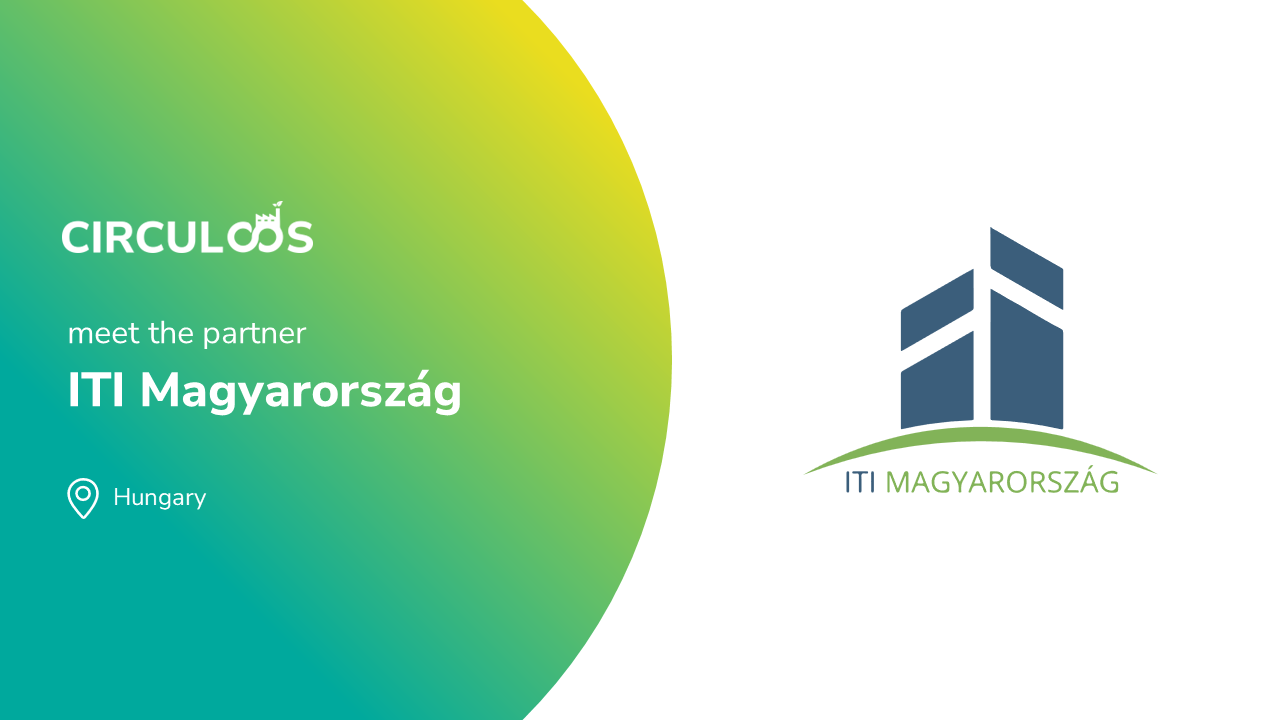ITI Magyarország Kft., is a consulting firm specializing in a broad range of services including urban development, renewable energy, green and ESG consulting, tax advice, and more. With a professional team experienced in both local and European urban development challenges, the company offers comprehensive solutions from strategic planning to the implementation of smart city developments and urban strategies. ITI Magyarország Kft. also assists in identifying and allocating urban development resources, including grants and financial market resources, and collaborates with various municipalities in developing smart cities and urban strategies.
Can you outline your specific responsibilities within the CIRCULOOS project?
In the CIRCULOOS project, ITI Hungary Ltd. is tasked with supporting the leather industry pilot through IT expertise. Our responsibilities include creating the infrastructure necessary for effective data-based communication among leather industry stakeholders and developing innovative IT solutions to manage waste flows and improve forecasting. This initiative aims to facilitate more sustainable and efficient practices within the leather industry by leveraging advanced technology.
How do ITI Hungary Ltd.’s extensive IT development experience and international exposure contribute to the success of the Hungarian pilot?
ITI Hungary Ltd. is deeply committed to supporting the digital and green transition, as evidenced by its operations and the services it offers, including ISO certification and a Smart service portfolio. Our involvement in the CIRCULOOS project provides an excellent opportunity to enhance our international presence and assimilate new approaches, methodologies, and expertise. This alignment with the project’s goals allows us to disseminate our green and digital transition ethos through our services, thereby making a significant impact on the Hungarian pilot and beyond.
Could you provide an overview of the Hungarian pilot and your collaboration with project partners?
The Hungarian pilot within the CIRCULOOS project is designed to explore waste minimization and circularity within the leather industry, particularly in small series production among supply chain members. ITI Hungary Ltd. contributes by offering data and information sharing solutions, process planning, and the development of a waste database and forecasting system. Our collaboration with project partners revolves around providing IT solutions that not only address the needs of the leather industry but also hold potential for application in other sectors and waste management contexts.
What challenges do you anticipate in the project?
One of the significant challenges we foresee is the lack of widespread adoption of circular solutions in the production sector. Identifying appropriate technologies, securing a skilled and dedicated workforce, and, more importantly, fostering pro-environmental behavior among consumers, which could significantly drive the circular transition, remain key obstacles. Overcoming these challenges will require innovative approaches and a collective effort to shift industry and consumer mindsets towards more sustainable practices.
How do you envision the future of the project?
Our vision for the project’s future is rooted in a deeper understanding of circular design and manufacturing processes. By gaining insights into these areas, we aim to apply our knowledge across various industries and waste types, thereby broadening the impact of our efforts and contributing to a more sustainable future.
In your view, how will the Circular Economy transform the manufacturing sector?
The advent of digital and smart solutions has already revolutionized numerous sectors, and we believe these innovations have a critical role to play in transforming production processes as well. The Circular Economy (CE) demands tailored solutions for each sector, supply chain, and manufacturing entity, representing a significant challenge. As a consulting firm specializing in the development of unique and customized solutions, we are optimistic about the feasibility of this transition and are committed to leading the way in enabling a sustainable and efficient future for the manufacturing sector.


